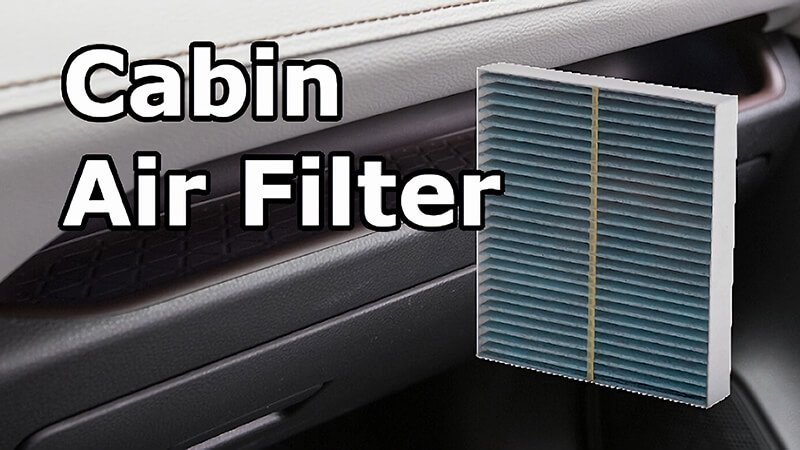The cabin air filter plays a critical role in maintaining the air quality inside your car. If it becomes clogged, it can lead to various issues that affect both comfort and the air you breathe. In this article, I’ll guide you through the signs that your cabin air filter needs replacing, ensuring your vehicle stays comfortable and your air remains clean.
A cabin air filter that is worn out or clogged can cause weak airflow, unpleasant odors, and even strange noises. Regular replacement is essential to ensure your vehicle’s HVAC system operates smoothly and maintains good air quality. Let’s explore how to tell if your cabin air filter needs replacing.
Now that we understand the importance of the cabin air filter, let’s dive into the specific signs that indicate it may be time for a replacement. This will help you recognize issues early and avoid further damage to your vehicle’s air system.
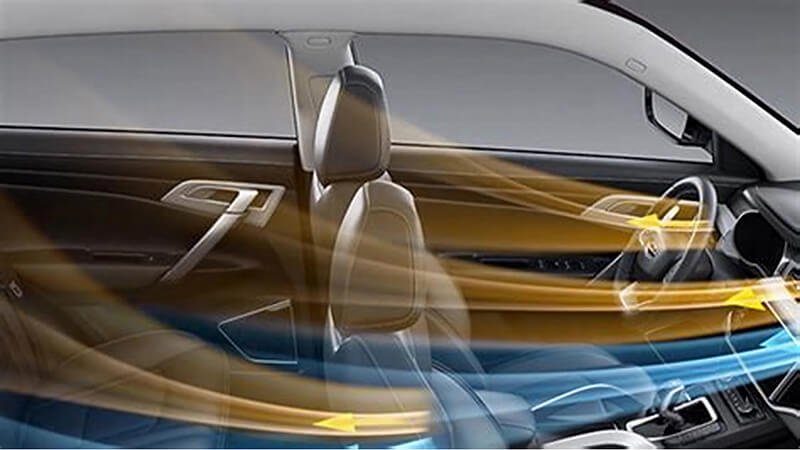
How to tell if a cabin air filter needs to be replaced?
Your cabin air filter can give you clear signals when it’s time for a replacement. These signs often relate to airflow, odors, and even unusual noises. In this section, we’ll look at the most common indicators that your filter may be clogged or degraded.
The most noticeable signs that your cabin air filter needs replacement include weak airflow, a musty odor, and strange noises from the heating or cooling system. These symptoms often appear when the filter becomes clogged with dirt, dust, and other particles.
Weak Airflow
One of the first signs of a clogged cabin air filter1 is weak airflow, even when the heating or air conditioning is set to the highest level. If you notice that the air from your vents isn’t as strong as it used to be, it may be due to a filter that is clogged with dirt and debris. The filter’s job is to block out particles, but over time, it can become overwhelmed, leading to reduced airflow.
Why Does Weak Airflow Occur?
When the cabin air filter is clogged, the airflow is restricted, and the system has to work harder to push air through. This can lead to inefficient heating and cooling, leaving your vehicle less comfortable, especially during extreme temperatures. Additionally, weak airflow can place extra strain on the blower motor, potentially causing premature wear and tear.
| Factor | Cause of Weak Airflow | Possible Outcome |
|---|---|---|
| Dirty Filter | Clogs from dust and debris | Reduced airflow and poor HVAC system performance |
| Damaged Filter | Wear and tear or tears in mesh | Uneven airflow distribution, forcing HVAC system to work harder |
| Insufficient Filter Size | Wrong size filter | Filter doesn’t fit correctly, leading to poor filtration and airflow |
Unpleasant Odors
A musty or stale odor coming from your vehicle’s vents is another clear sign that the cabin air filter needs replacing. As the filter accumulates dirt, moisture, and debris, it can develop a musty smell that is circulated through the air system when the HVAC is in use. This odor often becomes more noticeable when you turn on the air conditioning or heating system.
Why Do Odors Develop in Cabin Air Filters?
A musty odor2 typically occurs when moisture is trapped in the filter, providing the ideal environment for mold and mildew to grow. If this is not addressed, the odor will continue to spread throughout the vehicle. Mold spores can also circulate, potentially causing allergic reactions or respiratory issues.
Strange Noises
If you hear strange whistling, rattling, or unusual sounds coming from the cabin air intake ducts, this could also indicate a clogged filter. The noises occur when the airflow is restricted due to the buildup of dirt and debris. This forces air to move through the system in a way that it wasn’t designed to, often creating whistling or rattling sounds.
What Causes These Noises?
When the airflow is obstructed, the blower motor must work harder to push air through the system. This can cause the air ducts to vibrate and produce strange sounds. These noises may become louder as the filter becomes more clogged, and ignoring them can cause further damage to the HVAC system.

How do I know if my car cabin air filter is bad?
It’s not always easy to tell when your cabin air filter is bad just by looking at it, but there are a few signs and symptoms you can watch out for. In this section, we’ll explore how to determine if your cabin air filter is damaged or in need of replacement.
If you notice poor air quality, reduced airflow, or any musty odors coming from the vents, these could be signs that your cabin air filter is bad. Regular inspection and replacement can help keep your car’s HVAC system functioning properly.
Check for Dirt and Debris
The easiest way to check if your cabin air filter3 is bad is by inspecting it visually. If the filter is covered with dirt, leaves, or other debris, it’s likely no longer functioning as effectively as it should. A dirty filter can cause airflow issues4 and impact the overall efficiency of your HVAC system.
How to Check the Cabin Air Filter?
To inspect the filter, locate it in your vehicle. Usually, it’s found behind the glove compartment or under the dashboard. Remove the filter carefully and check both sides. If you notice excessive dirt or signs of wear (such as tears or holes), it’s time to replace it. Ensure the filter is intact, and the seal is secure, as any gaps in the filter’s placement can cause dirt and allergens to bypass it.
Reduced Effectiveness of HVAC System
Another indicator of a bad cabin air filter is the reduced performance of your HVAC system5. If you notice that the air conditioning or heating system is no longer keeping your vehicle at the desired temperature or that the system is taking longer than usual to heat up or cool down, the filter could be the cause.
How a Clogged Filter Affects HVAC Performance
A clogged cabin air filter makes it harder for the HVAC system to maintain the proper temperature. As the filter becomes blocked, the system needs to work harder to circulate air, leading to longer wait times for your desired temperature. This can be particularly frustrating during extreme weather conditions, such as summer heat or winter chill.
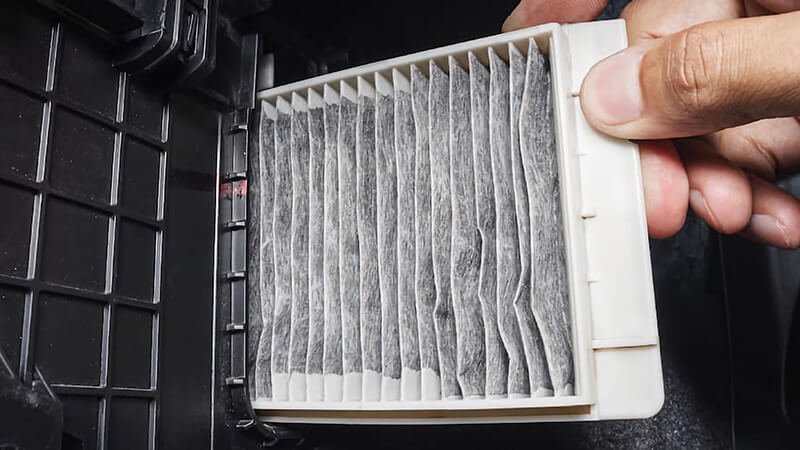
How often should you replace a cabin air filter?
Knowing how often to replace your cabin air filter is crucial to maintaining good air quality in your car. In this section, we’ll cover how frequently you should replace the cabin air filter based on different factors, such as your driving habits and the environment.
Generally, it’s recommended to replace your cabin air filter every 12,000 to 15,000 miles, or once a year. However, factors like frequent driving in dusty conditions or heavy traffic may require more frequent replacements.
Driving Conditions
The frequency of replacing your cabin air filter6 depends largely on your driving conditions. If you regularly drive in areas with heavy traffic, high pollution, or dusty environments, your filter will accumulate debris more quickly and will need to be replaced more often.
How to Adjust Your Replacement Schedule Based on Driving?
| Driving Condition | Recommended Filter Replacement Interval |
|---|---|
| Frequent short trips in cities | Every 12,000 miles or sooner |
| Driving in dusty areas | Every 8,000-10,000 miles |
| Long highway drives with clear air | Every 15,000 miles |
If you drive in dusty, polluted, or congested areas, it’s essential to inspect the cabin air filter more regularly. On the other hand, long highway drives with little exposure to dirt and pollutants may allow for longer intervals between replacements.
Manufacturer Recommendations
To determine the best replacement schedule7 for your vehicle’s cabin air filter, check your car’s owner manual. Most manufacturers recommend replacing the filter every 12,000 to 15,000 miles, but this can vary depending on the make and model of your vehicle. Always follow the manufacturer’s guidelines for optimal performance and longevity of your HVAC system.
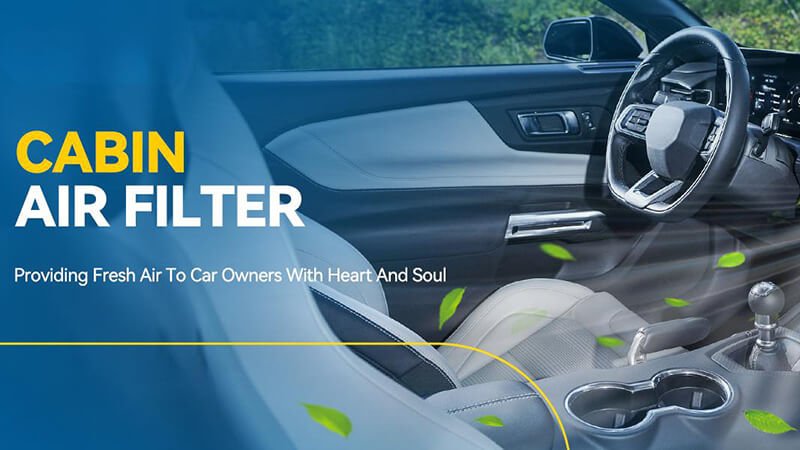
What happens if I don't replace my cabin air filter?
Failing to replace your cabin air filter can lead to several issues, including reduced air quality, system strain, and even health problems. In this section, we’ll explore the risks associated with not replacing your cabin air filter on time.
If you neglect to replace your cabin air filter, you may experience reduced air quality, weak airflow, and a struggling HVAC system. Over time, this can lead to discomfort, poor vehicle performance, and even health issues due to poor air circulation.
Poor Air Quality and Health Risks
One of the most significant consequences of not replacing your cabin air filter8 is the decline in air quality inside your vehicle. Over time, the filter will become clogged with dust, pollen, and other particles, preventing it from effectively filtering the air. As a result, you may breathe in harmful pollutants and allergens, which can cause respiratory issues, especially for people with allergies or asthma.
Health Impacts of Poor Air Quality
| Pollutant Type | Potential Health Effects |
|---|---|
| Pollen | Allergies, asthma attacks |
| Mold/Mildew | Respiratory issues, skin irritation |
| Dust and Debris | Sneezing, congestion, throat irritation |
Prolonged exposure to poor air quality9 can lead to headaches, fatigue, and other symptoms related to poor indoor air quality. In severe cases, these issues may exacerbate pre-existing respiratory conditions.
HVAC System Strain
When the cabin air filter is clogged, the HVAC system has to work harder to push air through the filter. This strain on the system can lead to increased wear and tear, potentially causing the system to fail prematurely. Replacing the cabin air filter regularly helps maintain the efficiency of your HVAC system, extending its lifespan and preventing costly repairs.
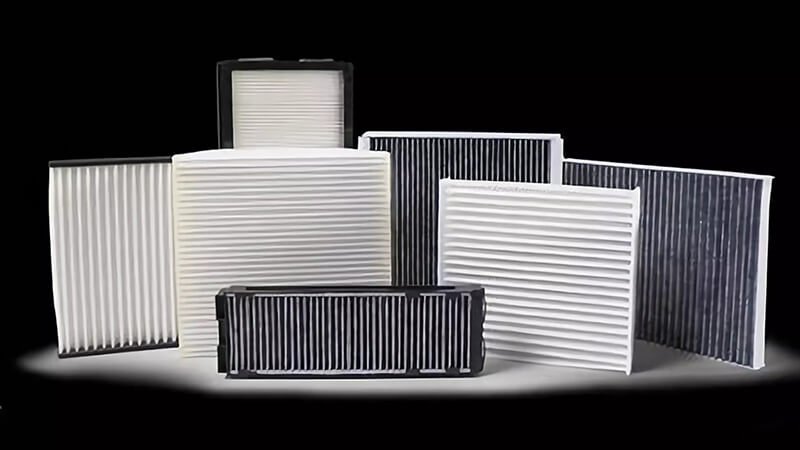
Conclusion
In conclusion, it’s essential to replace your cabin air filter10 regularly to ensure your vehicle’s HVAC system operates efficiently and that the air inside your car remains clean and comfortable. If you notice weak airflow, musty odors, or strange noises, it’s a sign that your filter needs attention. Regular replacements based on manufacturer guidelines will keep your vehicle running smoothly and maintain optimal air quality.
-
Understanding the symptoms of a clogged cabin air filter can help you maintain your vehicle's HVAC system effectively. ↩
-
Exploring the causes of musty odors can help you prevent mold growth and ensure a healthier driving environment. ↩
-
Understanding the signs of a bad cabin air filter can help you maintain your vehicle's HVAC system effectively. ↩
-
Discover the common causes of airflow issues to ensure your vehicle's HVAC system operates smoothly and efficiently. ↩
-
Learn how a clogged cabin air filter impacts your HVAC system's efficiency and performance for better vehicle comfort. ↩
-
Understanding the significance of a cabin air filter can enhance your vehicle's air quality and performance. Explore this link for detailed insights. ↩
-
Creating a proper replacement schedule is crucial for maintaining your vehicle's HVAC system. Discover effective strategies in this resource. ↩
-
Understanding the importance of a cabin air filter can help you maintain better air quality and vehicle health. ↩
-
Exploring the health impacts of poor air quality can inform you about necessary precautions and improvements. ↩
-
Looking for OEM Car Cabin Air Filter supplier, know more details. ↩

